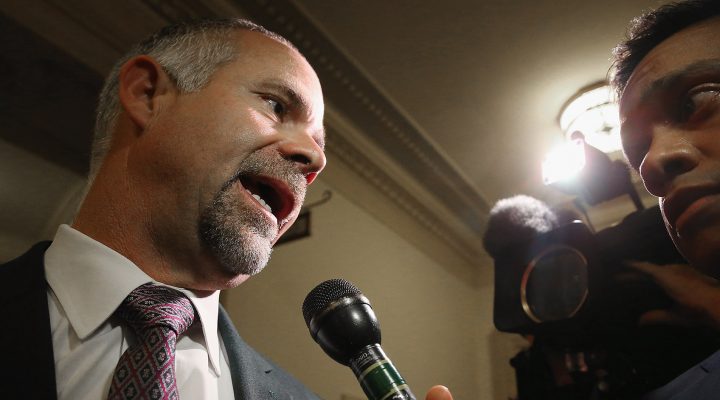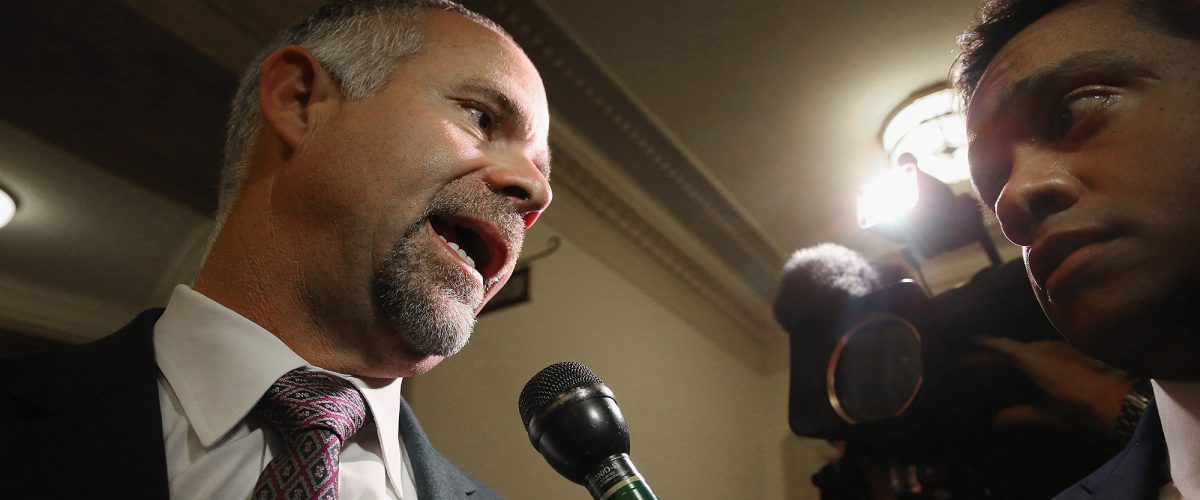Kansas is the latest state to award a government contract to an anti-abortion nonprofit group that encourages women who face unplanned pregnancies to give birth and provides them with resources to make motherhood work.
“Alternatives to Abortion” legislation enacted in August led the state to award $2 million to the Kansas Pregnancy Care Network “to empower a woman to welcome her child into the world.”
The Kansas Pregnancy Care Network was founded in June. The state said it was the only group to submit a successful bid. Bids by existing anti-abortion groups, including Life Alliance Kansas, did not win.
The new Kansas Pregnancy Care Network will work with the more experienced Texas Pregnancy Care Network. In Texas, legislators are set to spend $100 million on anti-abortion services in 2023, according to a state report. Overall, Texas has spent more than $130 million on these services since its program began in 2006.
As AP reported in 2022, a dozen states fund anti-abortion programs, many of them operated by religious nonprofits.
Pennsylvania was the first state to do so after Robert Casey, its pro-life Democratic governor, signed legislation in 1991. Today, more states are offering more funding for such programs after the U.S. Supreme Court overturned Roe v. Wade last year.
Opponents of abortion applaud the use of taxpayer dollars for this purpose, but some citizens are concerned about giving taxpayer dollars to groups long involved in abortion politics.
The abortion issue is complicated in Kansas, which in August 2022 became the first state to hold a vote on abortion-related issues after Roe v. Wade was overturned two months earlier. Voters strongly rejected a proposed state constitutional amendment that would have declared there is no right to an abortion in the state — by a vote of 59% to 41% — stunning many and alerting Republicans to the unpopularity of bans on abortion.
The leaders of the Kansas Pregnancy Care Network have been involved in the anti-abortion cause and GOP politics. Tim Huelskamp is a former U.S. representative with four adopted children. Mary Pilcher-Cook is a former state senator. Vicki Tiahrt is the wife of former U.S. Rep. Todd Tiahrt.
Another leader, Ron Kelsey, is president of Planned Parenthood Exposed, which seeks to overturn the Kansas 2022 constitutional amendment vote.
“If we are not getting criticisms and opposition, this is a sure sign that we are not being effective Christian witnesses.”
“We must fertilize the ground to eventually overturn ‘Kansas Roe’ while continuing to aggressively do everything that we can to protect innocent unborn human beings,” PPE’s website declares. “If we are not getting criticisms and opposition, this is a sure sign that we are not being effective Christian witnesses.”
Kansas Gov. Laura Kelly, a Democrat, vetoed the Alternatives to Abortion bill, claiming the issue was beyond the state government’s responsibilities and questioning whether spending funds on “largely unregulated pregnancy resource centers” made sense.
“This is not an evidence-based approach or even an effective method for preventing unplanned pregnancies,” she said. But legislators overrode her veto.
The Kansas program helps pregnant women and mothers receive counseling, food, diapers and other needs. Like most pro-life pregnancy centers, the program does not provide any medical services other than pregnancy tests.
Six years after the Supreme Court’s 1973 Roe v. Wade decision legalizing abortion, Francis Schaeffer and C. Everett Koop’s book and film, Whatever Happened to the Human Race?, galvanized evangelicals to declare abortion their No. 1 social and political issue.
Schaeffer and Koop inspired evangelicals to pursue two main strategies to reduce the number of abortions: legislation that restricts access to abortion and ministries that give women viable alternatives to abortion by providing the resources and support they need.
Care Net, which operates a network of 1,100 affiliated pregnancy centers, was founded as Christian Action Council in 1975 by theologian Harold O.J. Brown, who had been inspired by Schaeffer and Koop. Care Net’s website says it has saved 823,000 babies from abortion since 2008.
The AP reported state funding for anti-abortion groups’ alternatives hasn’t always gone well. The Pennsylvania-based nonprofit Real Alternatives misappropriated state funds intended to help Pennsylvania women, using the money instead to fund new programs in Michigan and Indiana. In 2019, Michigan canceled its $700,000 budget for abortion alternatives after it found Real Alternatives had failed to provide promised services.
In addition to state funding of anti-abortion programs, the federal government has provided more than $2 billion to fund abstinence-only education programs since 1996. Some studies question the effectiveness of these programs to reduce pregnancy rates.
Even with two dozen states now banning or restricting abortion, legal abortions likely increased in the U.S. during the first six months of 2023, according to a New York Times report citing data from the Guttmacher Institute.


